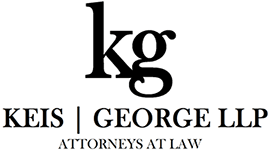Condominium Claims
In Chicago, we often find property loss claims that occur at condominium units. Of course, these claims tend to come with their own special issues that require investigation. Aside from general issues that come with all property claims, such as cause and origin of the loss and actual damages incurred, two issues should be investigated from the outset. Doing so will save time and get the case started on the right path.
Issue One: Condominium Declarations
Carriers will often claim that Illinois Condominium law will not allow for subrogation between unit owners. While this is often true, it is not necessarily the law. When looking at a property loss involving condominiums, the controlling item to review is the condominium declarations. Condominium declarations set out all rules between the owners of units. Often they will contain a waiver of subrogation between condominium owners and the condominium association or management. Sometimes it will limit the recovery to only the deductible for the damaged unit. But without such a waiver, there is not necessarily a reason that subrogation cannot be pursued.
Waiver of Subrogation
This section can be placed in many areas of the declarations so you will want to carefully review. They are most often located in sections called “insurance” or “remedies.” Typically waivers are clear, stating something to the effect, “if a loss is covered by the insurance of the property owner, any subrogation as to another unit owner or the association is waived.” If there is a proper waiver of subrogation, there is almost no way to continue forward. Lastly, a carrier of a negligent unit owner may mistakenly state, “there is no subrogation allowed.” Rest assured, the Declarations will determine whether subrogation is allowed.
Issue Two: Potential Targets
Even with a subrogation waiver, remember to review who the at-fault party is and whether they are covered by the waiver. For example, unless the waiver specifically states the tenants are covered, a renter of a unit that is at fault for causing damage may be pursued for recovery. The same is true if there is a guest at the unit that was at fault, as opposed to an actual owner. Further, if another unit owner hired a contractor to do work, such as a plumber, pursuit of the contractor directly would not be barred. If a product malfunctions in a separate unit, though you may not pursue the other unit owner, you may be able to pursue the product manufacturer with enough evidence. Lastly, if a condominium association hires a management company that turns out to be negligent, depending on the signed contract and declarations, the management company could be pursued.
Subrogation lawyers
Condominium losses present some unique circumstances and often require a deeper review due to the condominium declarations, waiver of subrogation, and determining potential targets. But, don’t give up on them with an assumption that they cannot be pursued. Our office frequently sees these claims and will happily review and advise you on what to look for and what we see. To learn more about the waiver of subrogation and how it may affect your condo claim, contact one of our subrogation lawyers.
